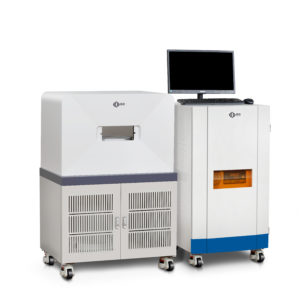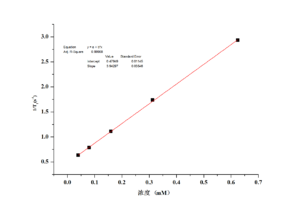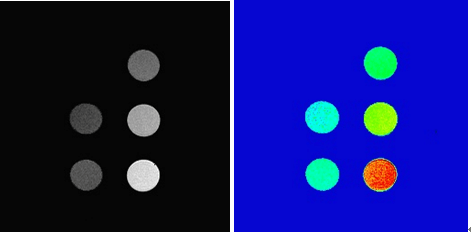MRI contrast agent relaxation characteristic
본문
MRI contrast agent research status:
Magnetic resonance imaging (MRI) plays an important role in tumor detection and diagnosis. The use of exogenous MRI contrast agent helps to improve the discrimination between lesion and neighboring tissue.
Design of a successful MRI contrast agent requires conflicting hypo toxicity and MRI properties to be met at once: although metal ions like Mn and Gd may lead to an excellent contrast enhancement, they also need to be chelated because the applied concentrations of the naked ions are toxic.
The NIUMAG MesoMR NMR analyzer plays a key role in characterizing and validating the properties of MRI contrast agent. The task is to examine the T1 and T2 relaxation time shortening of fat and water protons by MRI contrast agent. The fat and water protons are predominantly responsible for the NMR image.

Figure1: NIUMAG MesoMR NMR analyzer
MRI Contrast agent relaxation characteristic research:
Relaxation efficiency is a key indicator of MRI contrast agent. The sample with high relaxation efficiency can use the least amount to achieve the best efficacy. In the field of MRI contrast agent research, NIUMAG specially developed small NMR analyzer, can be convenient testing T1, T2 relaxation time, and can be used in imaging of tube samples and provide quantitative and qualitative evaluation data.
In the following experiment, we will study the relaxation time T1 of MRI contrast agent by changing the contrast agent concentration.
The T1 relaxation time of different concentration contrast agent

We can get the relaxation efficiency of the MRI contrast agent by calculating the slope of the straight line in the following function graph.

Figure 2: Relaxation efficiency of MRI contrast agent
T1 relaxation coefficient of the MRI contrast agent is 3.9429 mM-1s-1

As can be seen in figure above, T1 weighted images highlight the short relaxation. The shorter the relaxation time, the brighter the grayscale images and the redder the pseudo color images.

 TD-NMR/MRI
TD-NMR/MRI